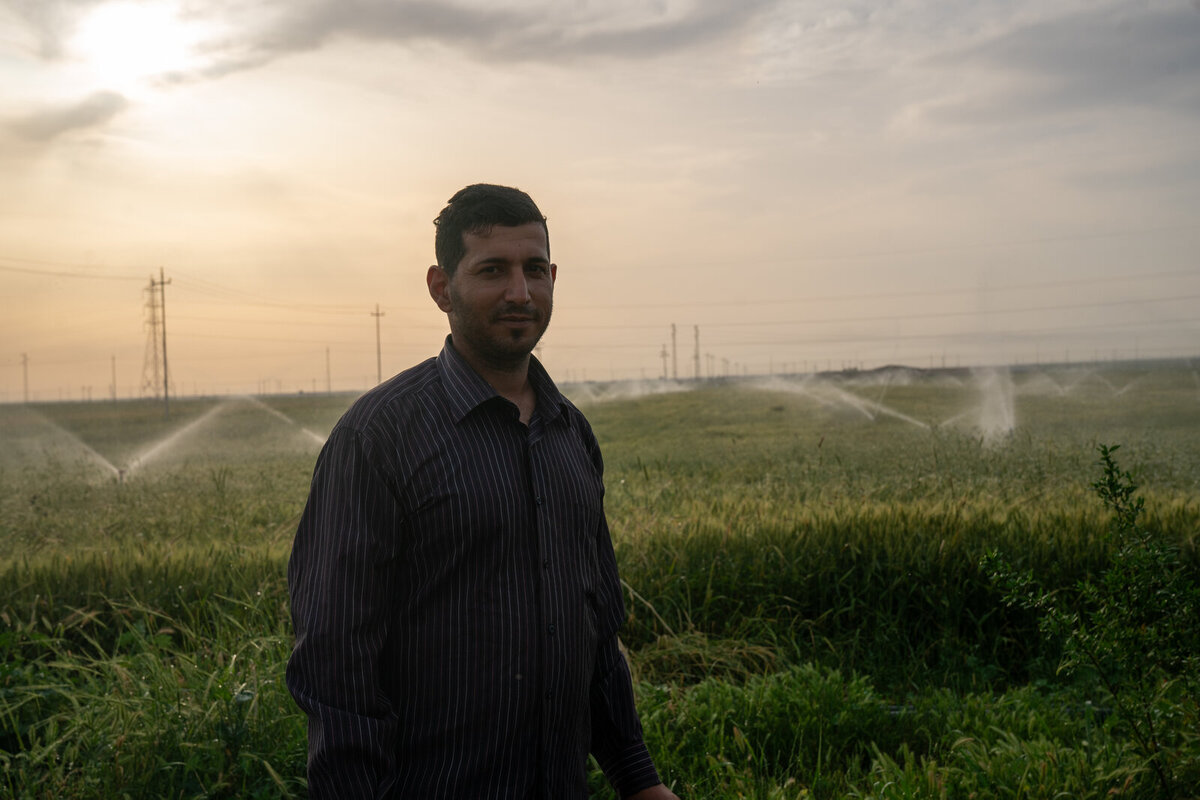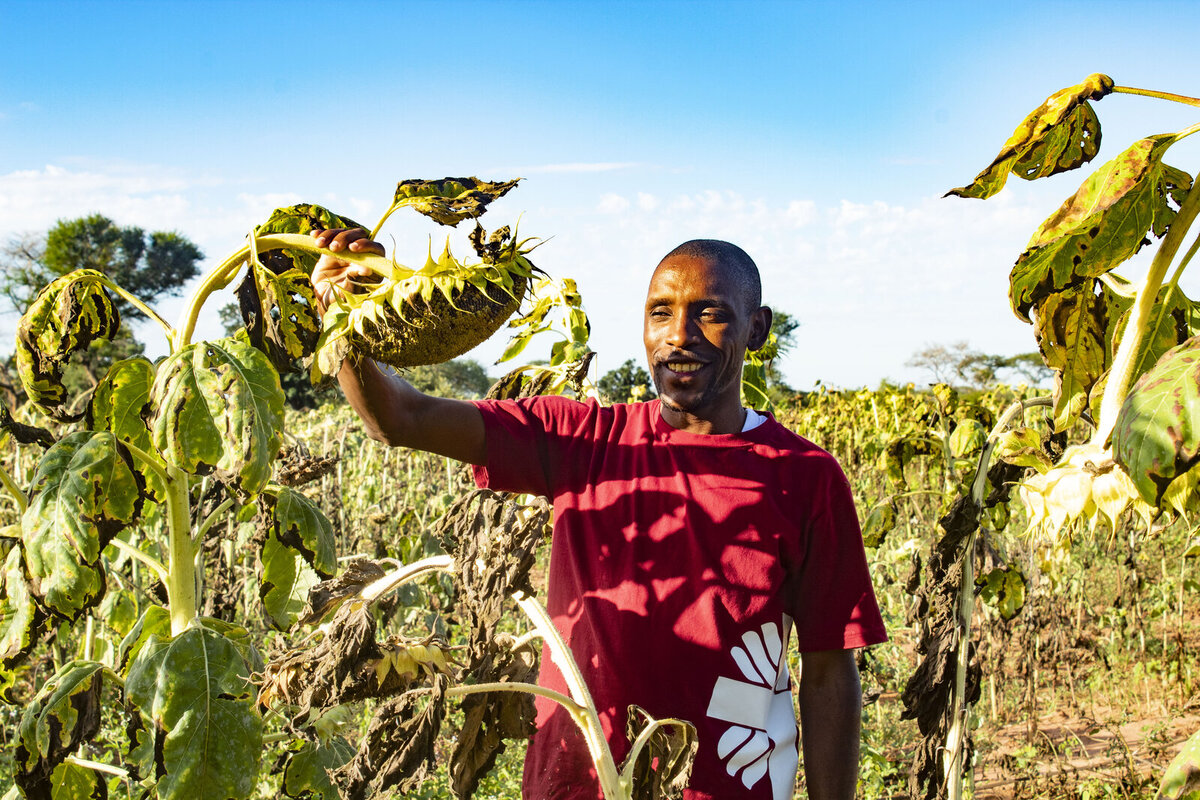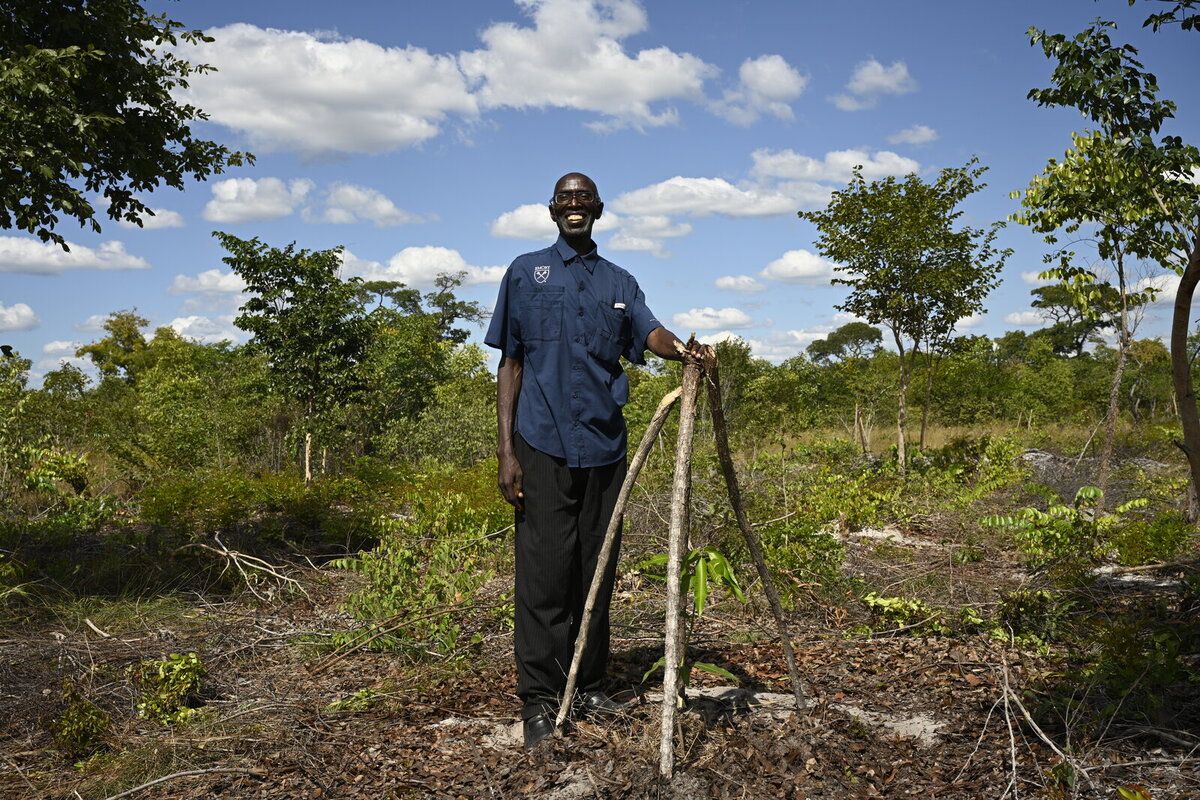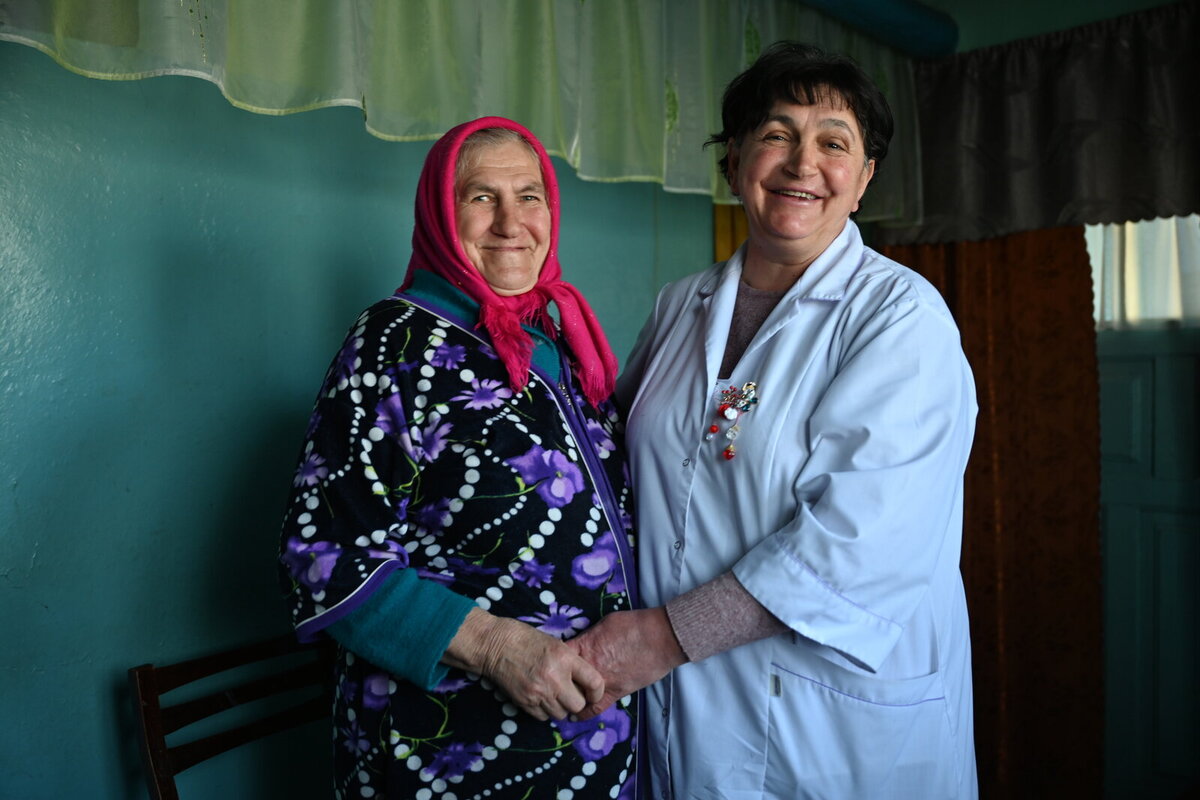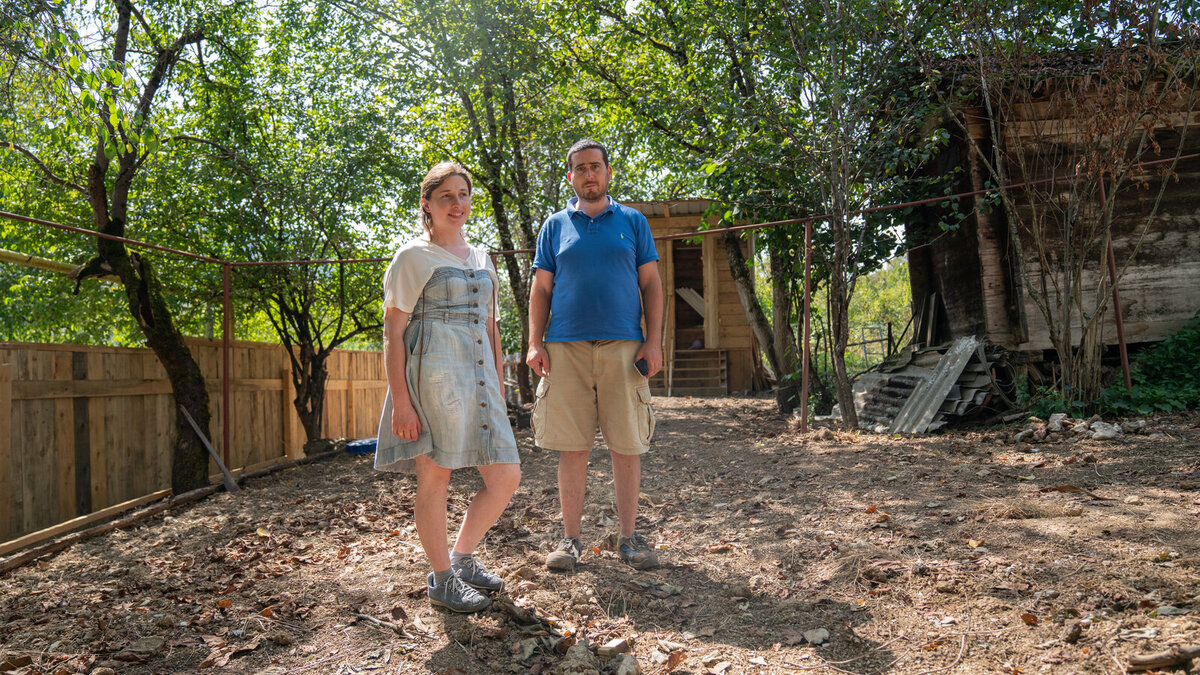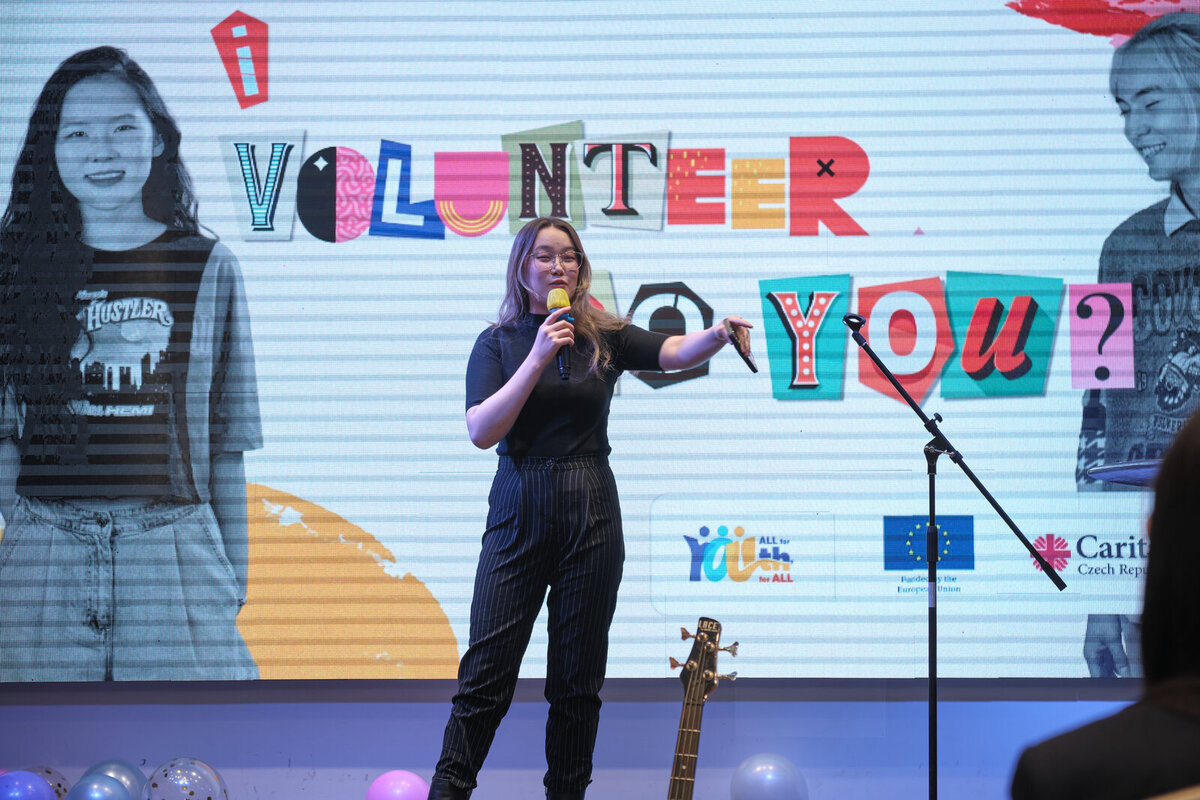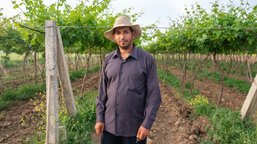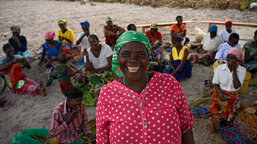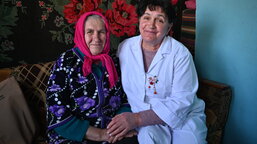Innovation in humanitarian aid is not just a buzzword, but an important part of supporting people in need. Farmers are harvesting despite climate change thanks to modern farming methods, while solar dryers are extending the shelf life of food. Telemedicine is bringing healthcare to remote places, and smart ways of using water are saving every precious drop. What innovations is Caritas Czech Republic using in humanitarian and development aid?
1. Innovations in agriculture bring modern cultivation methods and mobile apps for farmers
Waseem is a farmer from Iraq who is suffering from the effects of climate change. These are hitting hard in the Middle East region where Waseem's family has farmed for generations. “Now we are seeing first-hand how climate change is affecting our fields, our crops,“ says Waseem.
Farmers in Iraq are increasingly affected by droughts and weather fluctuations that deprive them of their crops. Caritas Czech Republic is helping farmers adapt to the changing climate also thanks to innovations. For example, we provide modern irrigation systems so farmers do not have to rely on erratic rainfall. Waseem received such a system from us, including training in modern farming methods. "I found the training very beneficial. I started the season with new skills that Caritas Czech Republic introduced to us so that we can adapt our farming to the changing climate," Waseem praises.
Not only in Iraq, but also in Zambia, farmers are affected by constant weather fluctuations. In Zambia, we have therefore installed solar-powered irrigation systems in the Meheba refugee settlement so that farmers can grow crops all year round, regardless of whether it rains. These systems are energy efficient and provide a sustainable solution in places where there is no easy access to electricity. We support farmers in Zambia throughout the entire process - from growing to selling. We provide them with the tools, knowledge and support they need to grow and sell food sustainably and improve their nutrition.
In Zambia, we have also introduced a mobile app for farmers to access important weather information, take out insurance against climate risks and easily get their crops to market through the app. Thanks to our initiative, the Zambian Ministry of Agriculture has trained 40,000 farmers in climate change adaptation.
We are also engaging innovative approaches in agriculture in Georgia. Here, Caritas Czech Republic is helping with sustainable pasture development in mountainous areas. We are introducing rotational grazing, which improves the quality of local pastures. Rotational grazing is a pasture management technique that involves moving livestock between different sections of pasture, allowing each area time to recover and regenerate before being grazed again. This method simulates natural grazing patterns, leading to healthier soil, increased biodiversity, improved sustainability, and more resilient and productive pastures.
2. Sustainable preservation of food extends its life and minimises waste
Did you know that food waste causes up to 8 percent of global greenhouse gas emissions? In Zambia, especially in rural areas, much of the food produced is thrown away simply because there is not enough demand for it locally or it is stored inappropriately. Caritas Czech Republic, together with Sylva Foods, introduces local farmers to ways how to process and preserve food to extend its shelf life.
Solar dryers also help in this, as an effective and environmentally friendly way to extend the shelf life of food. This comes in handy especially in areas with limited access to refrigeration facilities or where there are frequent power outages, something farmers in Zambia face.
Caritas Czech Republic has set up aggregation and processing centres in refugee settlements in Zambia to support the entire value chain from cultivation to market and handed these centres over to local farmers. These centres are equipped with everything the farmers need to efficiently store, process and prepare their produce for market. They include cold storage, storage rooms, washing points, generator set, plastic sealer, weighing scale and other necessary equipment. With these centres and training, farmers can better process their produce, get it to market and minimise wastage.
3. Telemedicine and IT systems bring healthcare to remote locations
74-year-old Maria lives alone in a small house in a Moldovan village. Her husband and son both died and Maria has no relatives nearby to care for her and take her to the doctor. However, a nurse, Ekaterina, from a nearby home care centre opened by Caritas Czech Republic, regularly visits the elderly woman. Ekaterina carries a tablet with her on her visits, which allows Maria to contact doctors remotely. "I am very happy that I do not have to travel to the hospital. One such visit would have cost me a lot of money," Maria praises the telemedicine services that Caritas Czech Republic provides for the elderly people.
We are also introducing telemedicine services in Georgia. For example, six-year-old Lile, who together with her mother regularly visits the family doctor Aza, has benefited from them. Due to a compulsory examination for school assessment, Lile would normally have to travel several hours for an appointment to a municipal centre. Thanks to telemedicine, her doctor connected remotely with an early development specialist, eliminating a long and arduous journey for Lile and her mum.
Telemedicine allows doctors to consult, diagnose and treat patients remotely. Caritas Czech Republic and the Czech Development Agency are introducing telemedicine services to doctors in rural clinics in Georgia. As a result, their patients do not have to travel to remote locations and the quality of healthcare in rural areas has improved significantly.
One of the other innovations Caritas Czech Republic is introducing in Georgia is IT solutions in primary health care. Thanks to the support of the Czech government and in close cooperation with the Georgian Ministry of Health, several centralised electronic systems have been developed, including the CovidLab laboratory system and two-way integration engines for data exchange between medical institutions and laboratories, which has helped to monitor the spread of disease and effectively manage covid-19 vaccination in Georgia.
The electronic health registry we developed makes it easier for doctors to do their daily work - instead of paper records, they can find all the information about patients in an electronic registry. The system is also used to share data with other government information systems, helping to monitor the quality of primary care and contribute to its improvement. Legislative documents were also crafted to support the full transition from paper records to digital processes in the health sector.
4. Innovative use of water prevents pollution and protects every drop
Temur operates a small family-run hotel and woodworking workshop in the Racha region in Georgia. His wife Elena runs an art school for local children. To improve conditions, they moved the workshop to their new hotel. With the building near the River Rioni, managing wastewater responsibly was crucial. Caritas Czech Republic, together with Slovakaid and Ekocentrum Sosna, helped to install a biological wastewater treatment plant, which is based on a method of using micro-organisms to clean liquid waste, resulting in clean water being released into the environment.
We have also helped introduce biological wastewater management in other villages in the Racha region. A young couple, Levan and Eka, received a bio toilet and biofilter from Caritas Czech Republic, which is based on filtering wastewater using natural ingredients.
We also work sustainably with water in Moldova, for example. Especially in rural areas of Moldova, water shortages are a big problem. Caritas Czech Republic has therefore come up with an innovative solution to help local schools and kindergartens collect, store and reuse rainwater. This approach, although common in the Czech Republic, is new in Moldova.
Because rainwater is a renewable resource, it can be used effectively to reduce dependence on traditional water sources, especially in areas where access to water is limited. This reduces the pressure on natural resources that may be threatened by climate change and related droughts. Rainwater harvesting and use also helps to reduce water costs for households, schools and other public institutions. This is particularly useful in developing areas, where access to water can be limited and expensive.
5. Opening the door to the digital world for young people and refugees
The world is becoming increasingly digital and digital skills are key to a successful career. Without these skills, young people from disadvantaged backgrounds are at risk of missing out on the train and not being able to compete in the labour market. Caritas Czech Republic, with support from the European Union, is helping young people in Georgia, Armenia and Moldova to develop the skills that will open doors to the world of digital technology. We have created a special guide that makes it easier for career counsellors to help young people find their ideal digital career. We focus on young people from disadvantaged backgrounds - for example, those who have limited access to education or job opportunities so that they do not remain marginalised.
Volunteering is also an important part of youth development. In Mongolia, where young people make up a large part of the population, we help to increase their engagement and involvement in society. Thanks to support from the EU and the Canada Fund, we have created a website, ivolunteer.mn, where young people can easily find volunteering opportunities, allowing them to gain valuable experience, develop new skills and contribute to their community at the same time.
In Zambia, we have been supporting refugees to stand on their own two feet in a new country for over 10 years. Among other things, we provide them with courses where they can learn a trade - such as tailoring. Thanks to our support, a commercial tailoring cooperative composed of asylum seekers, refugees, and former refugees in Lusaka was formed. Today, its members successfully produce a range of tailored products. To support members of the cooperative to develop their digital skills and help them gain more customers, we set up an e-shop for them to sell their products. We conducted comprehensive training sessions on business management, emphasizing the use of digital platforms such as e-commerce and social media.


